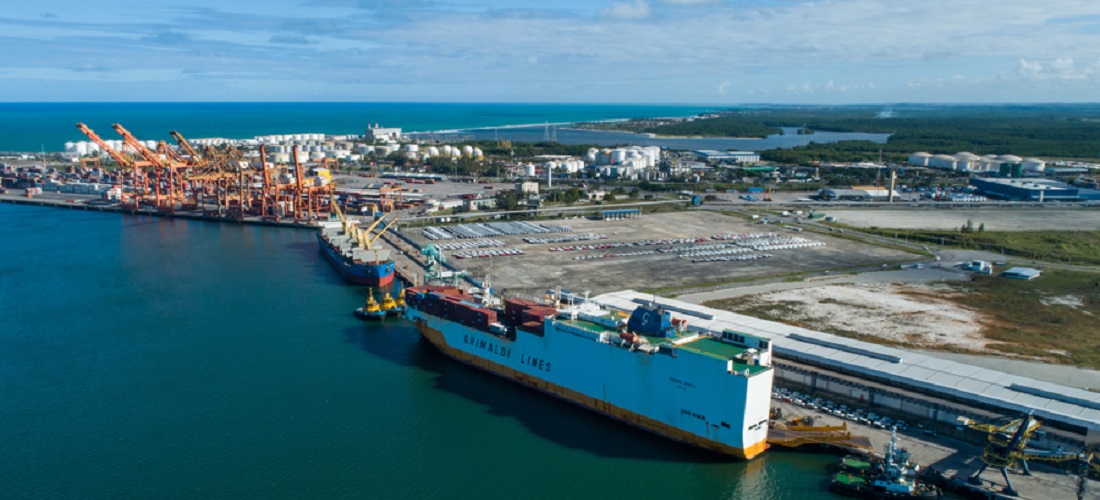
Local Quilombolas and Fishermen Block Access to Suape
Nov, 04, 2024 Posted by Gabriel MalheirosWeek 202444
On Monday morning, November 4, the quilombola community of Ilha de Mercês in Suape, Ipojuca, on Pernambuco’s southern coast, blocked the main roundabout leading to the industrial port complex at around 6 a.m. The African-diasporic community, home to over 200 families, is demanding that Suape commit to halting any forced relocations and abandon all repossession actions targeting the residents of Mercês and surrounding areas. Dozens of fishing families joined the protest, calling for the resumption of dredging compensation that the Suape administration had previously denied.
In September, Suape and the University of Pernambuco (UPE) signed an agreement for the “relocation and cultural preservation of the remnants of the Quilombo Ilha de Mercês.” According to a joint statement from the two institutions, UPE’s support agency (Iaupe) would facilitate community involvement throughout the planning and implementation of what was called the “Roots in Motion: Relocation and Cultural Preservation Project for the Remnants of Quilombo Ilha de Mercês.” However, the community rejected the project outright.
The protest also brought together other fishing communities from Ipojuca, demanding that Suape extend dredging compensation to 89 additional fishing families affected by port activities who had also been denied the benefit. The compensation package sought by the community includes a minimum wage and a basic food basket. Furthermore, they are calling on the complex to suspend dredging activities during the summer—given its greater environmental impact on marine ecosystems—as per a Federal Court ruling. They also seek detailed environmental impact assessments on the discharge of industrial effluents by companies operating within the complex.
Fishermen and quilombola residents co-signed a protest letter listing demands, which they intend to deliver to Suape as a basis for negotiation.
Leading the roadblock that halted access to the port complex, Ednaldo de Freitas, known as Nal Pescador and head of the Association of Fishermen, explained their protest: “We’re speaking out against rights violations by the Suape Industrial Port Complex, which for over 40 years has disregarded our territories, disrespected fishing rights, ignored fishers, forced them to pay tolls, and threatened to uproot a community from its natural habitat to some unknown location in the city, where there is no income for these families.”
Banners reading “No More Mangrove Loss – No More Dredging” were displayed along the road as Nal Pescador explained that the Mercês families were blindsided by the agreement announced between Suape and UPE, learning of it only when it appeared in the Official Gazette: “They didn’t consult the community. We weren’t informed or involved in any dialogue about the proposed relocation.”
Negotiations and Police Pressure
At around 9:30 a.m., Suape’s sustainability director, Carlos Cavalcanti, arrived on the scene, with fishers and quilombola residents pushing for concrete commitments before reopening the road. Cavalcanti proposed a 15-day window to review the demands, but this was rejected. By this point, the Military Police attempted to reopen access by force but were unsuccessful in dispersing the blockade.
-
Ports and Terminals
Mar, 20, 2024
0
Date set for public hearing on VDC04 port area lease
-
Ports and Terminals
Nov, 17, 2020
0
Eldorado Brasil and Bracell sign contracts for cellulose terminals at Santos
-
Other Logistics
Feb, 10, 2022
0
Ferroeste boosts Paraná economy with 13% increase in handlings in 2021
-
Fruit
Mar, 19, 2024
0
Brazil mango exports reach unprecedented export and revenue levels in 2023



